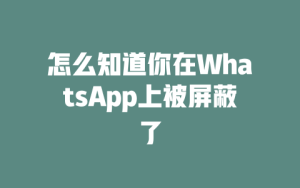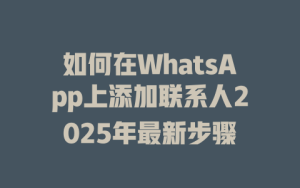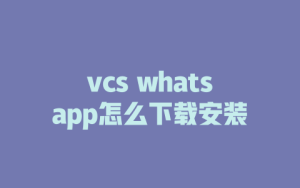How to Find Relevant Latest News Without Getting Lost in Irrelevant Results
Finding relevant news can be tricky because search engines don’t always understand the nuances of what we’re after. Here’s how I approach this challenge:
Step 1: Understand What Google’s Search Bots Care About
When you type “latest news” into Google, its bots are looking at specific things to figure out which pages best match your query. They check titles, descriptions, keywords within the text, and even how fresh the content is. This means if you want to find truly relevant results, you need to align your search with these factors.
For instance, last year, I helped a friend who was struggling to find quality updates on tech gadgets. We realized his searches lacked precision—he kept using vague terms like “best phones.” Once he refined his queries by including details such as brands or features, the quality of results improved significantly.
Why Precision Matters
Google robots prioritize content based on how closely it matches the searcher’s intent. If your search phrase is too broad, you’ll drown in generic articles. To avoid this:
Step 2: Optimize Your Search Queries
Let’s face it—we often rush through typing our searches without thinking them through. But taking an extra minute to structure your query properly can make all the difference. Here’s what I do:
Pro Tip: Google Trends (you can check it here) is a great tool for understanding popular topics. It shows what people around the world are currently talking about, helping you frame your searches better.
Step 3: Tap Into Reputable Sources Directly
Not all websites carry credible or timely information. A lot of my success comes from knowing where to look. Below is a quick table highlighting trustworthy sites across various categories:
| Category | Website | Strengths |
|---|---|---|
| Technology | TechCrunch | In-depth startup analysis |
| Health | Mayo Clinic | Backed by medical experts |
| Business | Forbes | Global market insights |
These sources consistently deliver high-quality, up-to-date content. Plus, they rank well in searches because they follow Google’s guidelines on E-A-T—Experience, Authority, and Trustworthiness.
Enhancing Your Reading Experience Through Browser Tools and Extensions
Once you’ve found reliable news outlets, enhancing your browsing experience can save tons of time. Let me walk you through a couple of tools I swear by:
Tool 1: RSS Feed Aggregators
RSS feeds allow you to pull updates from multiple sites directly to one dashboard. Imagine consolidating everything you care about—from sports scores to stock prices—in one spot. Apps like Feedly make this super easy. All you do is add URLs of your favorite blogs or news sections, and voilà! Instant notifications whenever new stories come out.
Tool 2: Custom Alerts
Setting custom alerts via Google Alerts is another lifesaver. You simply input keywords related to your interests, and Google emails you whenever relevant content appears online. Last month, I set up an alert for “AI developments in healthcare.” Within days, I received links to cutting-edge studies and industry breakthroughs.
Building Trustworthy Content Habits
Finally, always remember to verify the credibility of any article before diving deep. Ask yourself:
To ensure accuracy, cross-check facts between two or three independent platforms. Writing this piece reminded me of a rule I learned early on: If a story sounds too good to be true, double-check it.
Using WhatsApp Web without an active phone connection is something a lot of people wonder about. The truth is, WhatsApp Web relies heavily on your phone being online. It’s designed to sync everything in real-time, so if your phone goes offline, the web version won’t receive new messages. That said, there’s a bit of a grace period. If your phone temporarily loses its internet connection, WhatsApp Web might still display some cached messages that were previously loaded. These cached messages can stick around for a little while, depending on when your phone last synced, but it’s not a long-term solution.
Now, if you’re planning to go offline for an extended period, like 5-12 hours, you’ll likely run into issues. Once the cache runs out or new messages come in while your phone is disconnected, those updates just won’t make it to the web version. This limitation is because WhatsApp Web essentially mirrors what’s happening on your phone. So, without an active connection on your device, the web app can’t pull in anything new. For folks who need constant access, keeping their phone connected is the only way to ensure they stay up-to-date with conversations.
# FAQs
How can I optimize my WhatsApp Web for better efficiency?
Ensure you use the latest version of your browser and maintain a stable internet connection. Organize your chats by archiving less important conversations and utilizing WhatsApp’s search feature to quickly find messages or contacts.
What is the best way to keep up with the latest news in 2025?
Utilize RSS feeds, set up Google Alerts for specific keywords, and follow reputable sources that focus on the topics you’re interested in. Combine this with regular checks on trusted platforms to stay informed without information overload.
Can I use WhatsApp Web without an active phone connection for 5-12 hours?
No, WhatsApp Web requires your phone to be connected to the internet to sync messages in real-time. However, if your phone disconnects temporarily, WhatsApp Web may still show cached messages until the phone reconnects.
Is it possible to filter out irrelevant results when searching for the latest news?
Yes, refine your searches by using precise keywords, placing key phrases in quotes, and leveraging advanced search operators like “site:” or “intitle:”. This ensures search engines deliver more targeted content.
Why do my searches sometimes return outdated articles instead of the latest news?
This happens when search algorithms prioritize pages based on factors other than recency, such as relevance or authority. To get fresher results, include time-sensitive terms like “today” or “recent” in your queries, or check the date of publication before reading.




